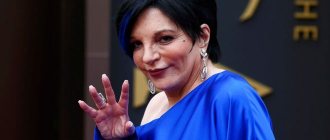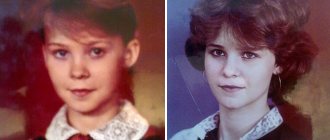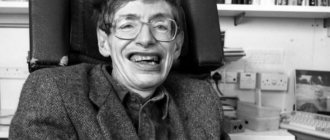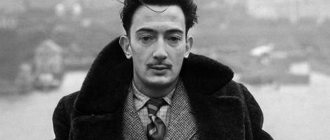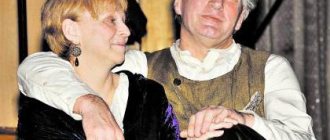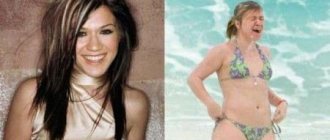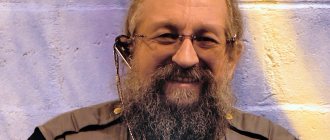Anatoly Karpov is a world-famous chess player. One of the best Soviet intellectual athletes, who became a symbol of victories and achievements, has not retired from work in modern reality. And now he takes an active position in social and political activities. In this material we will tell you how Anatoly Karpov (chess player) achieved success. The biography, personal life, and achievements of this person will be described below.
A hobby that has become the meaning of life
The boy began to get involved in chess almost from the cradle, because his father quite often spent time playing games with friends. And of course, little Tolik was very interested in these figures. Already at the age of four, the father began teaching the boy the basics of the game. A little later, he became a regular at the circle at the factory house, and there it immediately became clear how talented Anatoly Karpov was. The chess player whose biography interests us, already at the age of 10 could fight with adult and experienced opponents. And notes about his undeniable intelligence and skills have been published more than once in major publications in the country dedicated to this sport.
The childhood of the twelfth chess champion
At the age of five, the boy was introduced to chess by his father, after which there was a sports section at the Zlatoust Metallurgical Plant, where his father worked. Of course, an inquisitive, tenacious mind, natural inclinations, and the teenager’s interest in the ancient intellectual game had an effect. Anatoly became a first-class student at the age of nine, and at the age of 11 he fulfilled the norm of a candidate for master. Further successes were achieved under the leadership of S. M. Furman, an experienced grandmaster mentor. At the age of fourteen he became a master of sports; at the age of eighteen (in 1969), chess player Anatoly Karpov excelled at the World Youth Championship. From this stage began the rise of our talented compatriot, who to this day has not been surpassed by anyone in the number of victories at international competitions.
He reached the record milestone of 100 championships won in 1994 at the age of 43 (for comparison, the great Alekhine achieved an impressive result in only 78 matches and tournaments).
Phenomenal boy Anatoly Karpov
The chess player, whose biography is in front of you, very early began to travel around the country to various competitions. And this greatly contributed to the development of his talent. Already at the age of 11 he becomes a candidate for master. And when the boy reached the age of 14, he was awarded the title of Master of Sports of the USSR.
As for studying at school, Anatoly Karpov became the best student in his class in any subject. The chess player (photos are given in the article) easily comprehended any science, especially the exact disciplines. In addition, the boy was diligent, and as he himself admits, he always tried to do his homework as quickly as possible, so that after that he could devote himself to his passion for the game. As a result, a gold medal for graduating from Tula School No. 20, where Anatoly Karpov studied. The chess player continued to master science as a student of Mechanics and Mathematics at Moscow University, but after some time, he had to transfer to the Faculty of Economics of the State University (Leningrad), from which he graduated with honors. After this, the young man works as a research assistant in Moscow and Leningrad.
Anatoly Karpov, chess player: biography, family and personal life
Anatoly Karpov, Russian by nationality, is a native of the working-class Ural town of Zlatoust, a city in the Chelyabinsk region. When he was very young, he dreamed of becoming a pilot, promising all his relatives that he would take them on a plane ride. Childhood was not easy, like everyone else’s during that difficult post-war period. Once there was even a search in the apartment due to a denunciation against Father Anatoly. Having later moved with his parents to the Tula region, he graduated from school there with an “excellent” certificate.
From a young age, he participated in chess tournaments and won victories. And already at the age of 18 he received the title of grandmaster. Fifteen is how old Anatoly Karpov was when he became a master of sports. After studying at the Leningrad State University with a degree in economics, he got a job as a junior researcher at the Research Institute at this educational institution, subsequently moving to a similar position at Moscow University.
Anatoly’s father, Evgeniy Stepanovich, having studied at the Bauman Institute, became the chief engineer at military-industrial complex enterprises, since he was now a high-class specialist, of which there were not many. He became the author and participated in the creation of almost 90 inventions, including the Grad system and ball bombs.
The chess player has an older sister, with whom the age difference is five years. From his first wife, Irina Kuimova, a son, Anatoly, was born. His second wife was Bulanova Natalya Vladimirovna, with whom the grandmaster had a daughter, Sophia. Anatoly Karpov, a chess player whose personal life was complicated due to constant travel to tournaments and the psychological tension between them.
World recognition
In the early 70s of the last century, the entire world community already knew who Anatoly Karpov was. The chess player (nationality - Russian) had already won the title of world champion among youths, having won the 1969 competition. In 1970, Anatoly won the championship of the Soviet Union and earned the title of grandmaster. To become the holder of the world chess champion title, he needed to defeat the American Bobby Fischer. This fight would become the most interesting battle of the century, because the champions were representatives of warring countries: America and the Soviet Union.
Anatoly Karpov about brands, children and politics
Restaurant “Palazzo Ducale”, September 2012 // Photo: Artur Tagirov
Did Anatoly Karpov really decide to sell his famous collection of stamps and is he related to the found prototype of the Mona Lisa? It can not be! – I thought, driving up to the Palazzo Ducale restaurant, where we agreed to meet. As soon as the most titled grandmaster in the world, and now a State Duma deputy, opens the door, he is surrounded by fans. One can understand them: Karpov is an iconic figure. For people over forty-five, he is generally a national hero; at one time, Karpov’s victories over Viktor Korchnoi resulted in popular rejoicing. By the way, in terms of the number of stamps with his image, Anatoly Karpov is second only to Queen Elizabeth II of England. However, it is not on any Russian stamp.
“We had a law that living people cannot be immortalized. Exceptions were made only for political figures and a few cosmonauts,” Anatoly Evgenievich explains to me and adds that in 1982 there was an overprint on the USSR stamp: “A. Karpov is the winner of eight Chess Oscars.
– How did you become a philatelist? (Today the collection of the six-time world chess champion is estimated at 13 million euros.)
– I purchased the first stamp of 40 years of the Red Army (Workers' and Peasants' Red Army) at the age of seven and was very proud of it, because it depicted an infantryman, a tankman and a pilot. In Zlatoust, I was dreaming of the sky, telling in the yard that I would definitely sit at the controls of the plane and give everyone a ride. Then the number of collectors grew, and I decided to settle on Belgian stamps. I couldn’t afford a complete collection of US stamps, I reasoned, and Belgium is a small country. Many years later, at the World Philatelic Exhibition in Brussels, when participants from 250 states and territories were given only three stands, I was allocated eighty.
– And now you have decided to part with this wealth?
– I don’t know where such rumors came from. If I put part of the collection up for auction, it was only to find out its value.
– In first grade, you became not only a philatelist, but also went to a chess club?
– Yes, I started studying with the wonderful teacher Alexei Ivanovich Pak. He almost immediately put me against a 70-year-old chess player, I won and at the age of seven I received the third rank.
– There are rumors that in the late 70s there were only three Mercedes-350s in Moscow and they belonged to Brezhnev, Vysotsky and you. What did you spend your very first chess fee on?
– At the age of 15, together with my friend chess player Vitya Kupreichik, I went to the first international tournament in my life, held in Czechoslovakia. I remember there was a snowstorm, we waited three days for our flight in a Moscow hotel, and although we were late for the start of the championship, I still ended up first, and the money I earned was enough for a jacket for my mother and a set of portable chess.
Anatoly Evgenievich says that today he doesn’t even like to go to philatelist shops. He is irritated by widespread speculation. True, he often looks into the departments of tools and utensils. Looking at the assortment displayed there is a relaxation for him.
– How else do you relieve stress?
– I play tennis and play backgammon. An excellent relaxant is cards. Once I even “played my way” to the title of vice-champion of Russia as a fool.
– They say that all great chess players have problems sleeping, so during championships each one is assigned a personal psychic.
– The most difficult period was when I fought with Korchnoi for the world champion title. Insomnia was exhausting, sorting through stamps, which usually acts like a sleeping pill on me, did not help. Then Vladimir Zukhar, a psychologist, psychic and space medicine specialist, was placed in the next room. But through the wall he was powerless. As a result, Vladimir Petrovich tried to influence while standing nearby, but could not do anything.
– You open children’s chess schools all over the world. How many are there already?
– There are 200 schools, and I really want to organize something like a chess Olympics in them via the Internet.
– Do your loved ones sometimes keep you company in the game?
- No. My second wife Natalya is a historian, a leading expert on Bonaparte. Therefore, daughter Sonya, already at the age of six, could name the names of the most famous generals in the gallery of 1812 in the Hermitage. And the eldest son from his first marriage, Anatoly, works in computer graphics in outdoor advertising. When I travel from Sheremetyevo, I often see his work.
– How did you react to the news that Garry Kasparov bit a policeman at an opposition rally?
“This whole story is great stupidity, and even greater stupidity to talk about it, because no one bit anyone.” Garry Kimovich is a legend of our sport. He is the smartest, worthy person. The distributors of such nonsense are trying to make him look crazy, but these people themselves need the help of specialists.
Awarding the title
But on the eve of the match, Fischer began to make difficult demands. For example, he proposed a new battle scheme of up to 10 victories, and if the tournament score reached 9:9, then the enemy automatically lost. Apparently, he was very frightened by Anatoly Karpov. The chess player, of course, was refused, because no one would agree to such unfair demands. After this, Fischer announced his retirement from the sport and did not play with his opponent. As a result, Max Euwe, the head of FIDE, declared Anatoly Karpov the 12th world champion, and this happened on April 3, 1975.
Early years, childhood and family of Vladislav Kotlyarsky
Vladislav Yurievich Kotlyarsky was born on August 2, 1972 in Moscow.
His family was not one of the Soviet elite, and also had nothing to do with the world of cinema. However, despite this, our today's hero began to dream about cinema and the big stage from a very early age. After graduating from secondary school, Vladislav applied to the acting department of the Russian Academy of Theater Arts, but due to the lack of necessary knowledge and experience, he was unable to enroll. After this, succumbing to the persuasion of his parents, the young guy gave up trying to get into a theater university for a while and chose a different path for himself. At first he entered Moscow State University at the Faculty of Psychology, but studied
Actor Vladislav Kotlyarsky is at the peak of popularity
here for only two years, after which he moved to the geological faculty. Paradoxically, the future actor also stayed here for a short time. After a long search and wandering, the guy again decided to return to the beginning and for the second time in his life submitted documents to RATI. However, this time, in order to increase the chances of admission, I decided to try my hand not at the acting department, but at the directing department. Vladislav Kotlyarsky managed to enroll in his chosen specialty, but... not on the first try.
Due to constant tossing and searching, our today’s hero managed to get the coveted student card only at the age of 25. Thus, the actor’s creative path began relatively late.
The match that never happened
Despite the fact that Anatoly became the champion, he did not feel satisfied, because, whatever one may say, he earned his title not by victory, but by the refusal of his opponent. Therefore, Karpov promised to become a “playing champion.” And he kept his word. For 10 years, no one could take this title away from him.
The understatement in the match with the American put a lot of pressure on the champion’s pride, so great efforts were made to hold the Fischer-Karpov duel. The chess player, whose photo can be found in this material, agreed to almost any conditions, which aroused the indignation of the Soviet authorities. But, despite the prize fund, which reached a fabulous 5 million dollars, he failed to seat the American at the table. As experts comment on this situation: Fischer really did not want to become the one who loses to the Soviet chess player.
Hobbies of a chess player
Throughout his life, Anatoly Evgenievich has been collecting stamps. Among other philatelists, he is an authoritative figure.
Expert opinion
Larisa Antonovna Karelskaya
Head of department at Moscow GUM for more than 10 years. Salesperson at Children's World on Lubyanka.
Karpov has the largest number of Belgian stamps. Their total cost is 13 million euros. He has repeatedly demonstrated his collections at famous exhibitions. The chess player owns exclusive samples. This hobby distracts him from routine activities and gives him the opportunity to relax.
Loves to play billiards. It was this hobby that introduced him to famous politicians and athletes.
Currently
Karpov likes the paintings of Salvador Dali. Ever since childhood, he admired his creativity and skill. Anatoly met him in New York.
Relations with Kasparov
The confrontation between the two chess players has become a legend. Anatoly Karpov still remembers the early termination of their first match, which lasted 5 months. According to the chess player, the decision about Kasparov’s victory was made “from above”, and came from Heydar Aliyev and Alexander Yakovlev, who did not hide their sympathy for Kasparov. From then on, irreconcilable relations bound them together for the rest of their lives, and the confrontation resulted in enmity not only at the chessboard, but also beyond it. Kasparov and Karpov made their antipathy clear more than once, but over time their aggressiveness subsided a little, and the two champions learned to coexist peacefully, and even provide each other with support. For example, in 2010, Harry Karimovich, who wanted to remove Kirsan Ilyumzhinov from the post of FIDE president by any means, supported Karpov’s candidacy. But this “adventure” failed. And Ilyumzhinov was re-elected for a second term.
Anatoly Karpov, chess player: personal life
Anatoly dated his first wife, Irina Kuimova, the daughter of a high-ranking military official, for five years. In 1979, the couple registered their relationship, and after some time, a child appeared in their family - a son named Anatoly. But the idyll did not last long, and in 1982 Irina filed for divorce. The reason was the constant travel, in which Karpov often spent time.
The chess player whose personal life interests us did not remain a bachelor for long. Already in 1983, he met his new chosen one, Natalya Bulanova. The young nineteen-year-old girl makes an indelible impression on the grandmaster with her education and beauty. In addition, they turned out to have many common hobbies, for example, a love of Japanese cuisine and ballroom dancing. After some time, the lovers realized that they could not live without each other and decided to get married. Their marriage can be called successful: the couple attends international sporting competitions together, and lives in perfect harmony to this day. In 1999, a child appeared in the family - a girl, who was named Sofia.
Personal life
The chess player's first wife was the daughter of a high-ranking military man, Irina Kuimova, with whom they dated for five whole years. Soon after their marriage, their son Anatoly was born, who became an authoritative specialist in the field of computer technology. In 1982, the couple separated, according to some reports, due to Irina’s rejection of her husband’s lifestyle, who was constantly traveling.
With his first wife Irina Kuimova
The next year, Karpov met Natalya Bulanova, who worked in the ancient manuscripts department of the Lenin Library. Being a very young nineteen-year-old girl, she amazed the world champion with her beauty and extraordinary education. Love did not come immediately, but gradually, over the course of many meetings, they realized that they were made for each other and decided to get married.
Anatoly Karpov and his second wife Natalya Bulanova
They turned out to have many common interests, for example, ballroom dancing and Japanese cuisine. The couple attends many international chess competitions together. In 1999, when Anatoly was already 48 years old, his long-awaited beloved daughter was born, who was named Sofia.
With daughter Sofia and wife Natalya (2010)
Political career
Everyone knows that Anatoly Karpov is a world-famous chess player. But the champion achieved success not only on the board. The grandmaster became famous as a politician and public figure. Karpov's political career began in the late 80s of the last century. Then Anatoly became a deputy of the Supreme Soviet of the USSR. In 2011, the chess player became the people's representative to the State Duma of the sixth convocation, where he worked on the committee related to environmental management. Since 2004, the grandmaster worked in the Presidential Council of Culture, and since 2007 he joined the public council created under the Ministry of Defense. Karpov is an ardent wanderer of Vladimir Putin, and believes that this politician saved the state from imminent destruction.
Social activity
Anatoly is also an active public figure. He personally oversees several chess-related projects. Karpov heads the all-Russian tournament "White Rook", the organizing committee of the International Children's Festival "Chess in Schools", and is also one of the leaders of the International Federation of Russian Chess. In addition, in 1998, the grandmaster was nominated for the post of ambassador of the world organization UNICEF Children's Fund. In addition, Anatoly often holds charity simultaneous matches with prisoners, which became available with the development of the Internet in our country.
Biography of a chess player
The future world champion was born in the city of Zlatoust, Chelyabinsk region, on May 23, 1951. Mother and father were working people - they worked at a machine-building plant. When the boy turned 14 years old, the family changed their place of residence to Tula, where Evgeny Stepanovich Karpov was sent to hold the position of chief engineer at a defense enterprise.
Little Tolik began to get involved in chess in preschool age - his father gave the boy his first lessons in the game. After entering school, the future champion enrolled in the chess club of the House of Pioneers. All this became the basis for the development of the grandmaster's talent - when Anatoly turned 11 years old, he was already a candidate for master of sports, and at the age of fourteen he received the title of master of sports of the Soviet Union.
Anatoly’s schooling was also excellent. In 1968, the guy graduated from school, received a gold medal, after which he decided to enroll in Mechanics and Mathematics at Moscow State University. But the competition at this prestigious university was so high that Anatoly did not pass. Almost immediately, the future grandmaster was offered a place at the Leningrad Military Mechanical Institute without exams, but fate decreed otherwise. The first world chess champion from the USSR, Mikhail Botvinnik, personally influenced the country's Minister of Education, after which they decided to enroll Karpov at Moscow State University. Botvinnik did this because he was sure that the guy would not be able to develop his chess talent if he lived outside the capital. Anatoly received a free schedule for visiting the university and could devote himself completely to chess.
Karpov (center) with other talented juniors - Gennady Timoschenko and Yuri Balashov
Already in 1969, Karpov won the junior championship title and the USSR championship, after which he was awarded the title of grandmaster. Anatoly’s next and main task is the world chess crown. Preparation for qualifying tournaments is carried out with the involvement of the best chess specialists from all over the USSR. Before the fight with Bobby Fischer, Karpov, one after another, without any problems beat powerful opponents - Polugaevsky, Spassky , Korchnoi - the entire chess elite of the Soviet Union. And then the long-awaited 1975 came - everyone was looking forward to the chess match for the world crown.
Anatoly Karpov in the final match against Viktor Korchnoi (standing)
Fischer was the strongest chess player of his time and a very extraordinary personality, capable of performing extravagant and unexpected actions. In 1972, he won the championship match against Soviet grandmaster Boris Spassky in a scandalous match, after which the USSR lost its dominance in world chess, which had been observed for many years.
In preparation for the meeting with Anatoly Karpov, Fischer sends a whole list of demands to FIDE, forcing them to change the rules of the match, and is stalling for time. Another outstanding chess player Garry Kasparov gave an interview about this many years later:
“Bobby Fischer recognized the strength of Anatoly Karpov in those years. Therefore, he did not want to go down in history as the person who lost to the grandmaster from the USSR. Fischer used any tricks to avoid a chess match. Unfortunately for millions of chess fans around the world, he succeeded – not a single game was played between him and Karpov.”
On April 3, 1979, Bobby Fischer refused in writing to fight Karpov, and FIDE recognized the Soviet grandmaster as the twelfth world champion. This news spread throughout the USSR, and the newly-crowned “king” of chess was personally congratulated by L. I. Brezhnev. 1978 and 1981 were marked by two matches for the championship title, in which Karpov defended the title against Viktor Korchnoi, who fled the country to Switzerland in 1976. The political tension at these two meetings was simply incredible, but Karpov survived and did not give up the world chess crown.
See also: Tigran Petrosyan
Confrontation between Karpov and Kasparov
In 1984, the famous rivalry between the two grandmasters began. During the first match for the chess crown, which lasted a little less than six months, Anatoly had only one point left for triumph. But the match was stopped early, and Karpov himself repeatedly stated that this was done due to the influence of the First Secretary of the Communist Party of Azerbaijan G. Aliyev, who was clearly on the side of Garry Kasparov .
In 1985, the second match between these two grandmasters took place, in which Harry won, becoming the 13th world champion. In the future, three more fights took place in which Kasparov was stronger. At that time, the political situation in the USSR was heated to the limit, so the confrontation between the two grandmasters had a political background. Although it seemed to ordinary people that both represented the Soviet Union, the chess players had nothing to divide, since the championship title would not leave the USSR in any case.
But this confrontation was not simple. The meeting began to be interpreted as a confrontation between two systems - the old Soviet and the new perestroika. Karpov, who won the world title in 1975, attracted the attention of the authorities. He constantly traveled abroad, drove around the capital in a brand new Mercedes, and dressed immaculately. Anatoly personified a living example of the advantages of the Soviet system over the “decaying” West. Garry Kasparov is a symbol of the opposition government, which was gaining strength in those days.
Historically, these two great grandmasters found themselves at the forefront of political confrontation against their own will. The personal relationship between Karpov and Kasparov also left much to be desired - the grandmasters did not hide this, repeatedly making harsh statements about their opponent. The chess world is quite narrow, so they often had to intersect at different tournaments. Because of this, there are a lot of pictures of them together in the press. In the future, Anatoly Karpov won the FIDE chess crown three more times.
This happened in 1993, 1996 and 1998. It is noteworthy that the grandmaster was recognized as the best chess player of the year 9 times during his career and was awarded Oscar prizes. About 50 games played by Anatoly Karpov were named the best games of the year or specific competitions. The grandmaster has been awarded numerous orders and certificates of honor, and has medals and badges from Russia and foreign countries (Le Havre, La Rochelle, Cannes, Belfort, Lyon, Cuba, etc.).
Politics and popularization of chess
Anatoly Karpov began to engage in politics back in the USSR in 1988, when he became a deputy of the country's Supreme Council. After the collapse of the Soviet Union, he supported Boris Yeltsin; now he is a deputy from the United Russia faction. He is actively promoting chess in the country. He is the director of the White Lady chess tournament, heads the organizing committee of the Chess in Schools festival, and is one of the leaders of the Russian Chess Federation. Since 1998, Anatoly Karpov has been a regional UNICEF ambassador.
Anatoly Karpov gives a session in one of the Russian colonies
Throughout Russia there are “Karpov Chess Schools”, which are unofficially considered the strongest in the world. The grandmaster visits places of detention, where he often conducts simultaneous games with the administration and prisoners, and travels a lot around the country, doing charity work. Karpov is fond of philatelicism and owns one of the most expensive stamp collections, the value of which, according to unofficial information, is estimated at more than 10 million euros.
Personal life of Anatoly Karpov
A few words about my personal life. Anatoly Karpovy was married twice. The first wife is Irina Kuimova; she has a son, Anatoly, who is now a leading specialist in the field of information technology. The second wife is Natalya Bulanova, with whom she shares a daughter, Sofia, who was born in 1999.
Success in the literary field
Anatoly Karpov is a chess player who has written more than fifty books, monographs and textbooks, the lion's share of which are devoted to his favorite game. “In Distant Baguio,” written from the grandmaster’s personal memoirs and diaries and describing the 1978 tournament with Viktor Korchnoi, is extremely popular among readers. From his “light pen” came the amazing textbook “Learn Chess”, in which the author explains the basics of tactics and move strategies to beginners in a playful way. Biographical works, for example, “My Sister Kaissa” and “The Ninth Vertical” are of no less interest. In these books, Karpov talks about relationships with rivals. In addition, the grandmaster is an excellent journalist, and in his “piggy bank” there are many magazine and newspaper articles on pressing socio-political, social and economic topics. For some time, Anatoly Evgenievich was the editor of the popular Chess Review magazine, dedicated to gaming topics, and also took part in the creation of the Encyclopedic Chess Dictionary.
Anatoly Evgenievich Karpov was born on May 23 1951
years in the working-class Ural city of Zlatoust. Karpov’s ancestors, both on the side of his father Evgeniy Stepanovich and on the side of his mother Nina Grigorievna, belonged to the oldest dynasties of Zlatoust workers.
The parents met at a machine-building plant. Tolya's father began teaching him to play chess when he was 5 years old. Already from the very first chess games, young Karpov received lessons of nobility from his father: Evgeniy Stepanovich did not bring the game to checkmate, but over and over again rearranged the pieces and tried to explain simple truths to his son as the game progressed. The game for results began only when the boy learned the meaning of the game and learned to anticipate the next moves. The first defeats sometimes brought tears to Tolya’s eyes, and in such cases his father tenderly consoled him. But one day my father threatened: “If you cry again, I will never sit down to play with you again.” These were the last chess tears in the Karpov family circle.
At the age of 6, Tolya began playing with the children from his yard. Tolya's first domestic rival was Sasha Kolyshkin, who later became his friend. It was he who brought first-grader Karpov to the chess club, located in the Sports Palace of the Zlatoust Metallurgical Plant. This was the only place in the city where chess was played. The classes at the club were led by second-grader Alexey Ivanovich Pak. Karpov subsequently recalled: “I was lucky: when I was 7 years old or a little earlier, Mikhail Tal entered the big chess with brilliance and, as I remember, everyone knew this name. Everyone was rooting for Tal - a young star! – and chess captivated many people. In those years, we, in Zlatoust, had a real chess boom. In our yard, almost all the children knew how to play chess. At some point, chess supplanted all other games, and, sitting on the porch, we played chess all day long.”
At the age of 9, Anatoly received the first category and became the champion of the Chelyabinsk region among schoolchildren; at the age of 11, he fulfilled the norm of a candidate for master of sports. IN 1963
12-year-old Karpov became the youngest candidate for master of sports in the country and won the Zlatoust championship among adults. It is not surprising that in the same year he was among the very first enrollment at Mikhail Botvinnik’s school, organized in the Moscow region by the Trud sports society. Anatoly, like other promising schoolchildren, came to Botvinnik during the holidays. Tournaments were held here, games were analyzed and the theory of chess was studied. These meetings had a great influence on Karpov, and he decided to seriously devote himself to chess. At the age of 15, Karpov became a master of sports of the USSR.
IN 1965
year, after graduating from the seven-year school - school No. 3 in the city of Zlatoust, Anatoly Karpov was given a diploma indicating that his name was included in the school chronicle. Anatoly received certificates of commendation for each year of study and won numerous competitions. In the same year, the Karpov family moved to Tula, where Evgeniy Stepanovich became chief engineer. Anatoly enters the mathematics class of Tula secondary school No. 20, from which he graduates with a gold medal. After graduating from school, Karpov entered the Faculty of Mechanics and Mathematics of Moscow State University. Lomonosov. At the same time, Karpov moved from the Trud society to CSKA. The move to CSKA led to the conclusion of a creative union between a talented chess player and an experienced coach, Semyon Abramovich Furman.
IN 1969
In 1978, Anatoly transferred from the Faculty of Mechanics and Mathematics of Moscow State University to the Faculty of Economics of Leningrad University, from which he graduated in
1978
. One of the main reasons was the desire to be closer to Furman, who lived in Leningrad.
IN 1969
In 1970 in Stockholm, Anatoly Karpov became the world champion among juniors, and in
1970
he became the champion of Russia.
In the same year, Anatoly participated for the first time in a strong international tournament in Caracas (Venezuela) and immediately fulfilled the grandmaster norm. The second half of 1971
was more eventful than ever for Karpov with important chess competitions. The national marathon championship in Leningrad had barely ended when he had to start at the Alekhine Memorial in Moscow.
At the draw, Karpov could not unscrew the head of the souvenir nesting doll in which his serial number was hidden for a long time. This gave a reason for some joker from the audience to exclaim: “He’s not strong enough... How can he survive such a tournament!”
Anatoly survived. Together with Leonid Stein, he shared first place in the strongest tournament of that time, ahead of the current world champion Spassky and three ex-world champions - Smyslov, Tal and Petrosyan.
When another ex-world champion Botvinnik learned that Karpov became one of the winners of the super tournament, he exclaimed: “Remember today - December 18 1971
of the year. A new chess star of the first magnitude has risen!”
IN 1972
In 2009, Anatoly made his debut as a member of the USSR national team at the World Chess Olympiad in Skopje (Yugoslavia). He showed the best result on the first reserve board (13 points out of 15) and significantly helped the team win the Olympics. After its completion, Tal said: “In Skopje, I realized that Karpov is truly capable of the highest achievements.”
IN 1973
In 2009, Karpov took the first step towards the title of world champion, sharing first place with Korchnoi at the interzonal tournament in Leningrad. One of the most important games in the tournament for Karpov was the game against Tal. The game was postponed in a difficult position for him. In the analyzes with Furman it was impossible to find a draw. Anatoly fell into an uneasy sleep. And in a dream a sketch was found leading to salvation. True, when finishing the game, Tal did not act in the best way, and a draw was achieved much easier. After this game, the American Zuckerman, who was on friendly terms with Fischer, exclaimed: “If Karpov saves such positions, then it is generally impossible to defeat him!”
IN 1974
year, Anatoly Karpov successfully overcame all stages of the candidates' matches (in the quarterfinals he won against L.A. Polugaevsky (3:0, excluding draws), in the semifinals - against Spassky (4:1), in the final - against V.L. Korchnoi (3 :2)), and began intensive preparations for the match with world champion Fischer.
However, in the spring 1975
, after lengthy negotiations with FIDE, Fischer abandoned the match with the challenger, and Anatoly Karpov was proclaimed the 12th world chess champion.
For almost two more years, Karpov conducted informal negotiations with the ex-champion about organizing a match outside the FIDE framework, but it was not possible to reach an agreement. However, Karpov proved that it was no coincidence that he received the title of champion by performing intensively and very successfully in tournaments. Already in 1975
, he won a major tournament in Milan, as well as a number of other competitions (Manila, Rovinj-Zagreb, etc.).
In 1976
,
1983
and
1988
_
Karpov won the USSR championships (in 1988
- together with Garry Kasparov).
IN 1978
and
1981
_
Karpov successfully defended his title in matches with V.L. Korchnoi. First there was a grueling match in Baguio in 1978
, where after a successful start (a match up to 6 wins, Karpov led 5:2), Karpov suffered a series of defeats, and the score became 5:5.
However, the next, 32nd game became the last: Karpov won the game and the match. In 1981
, in Merano, Korchnoi was no longer able to set serious tasks for Karpov. However, a new opponent appeared - young Garry Kasparov.
The confrontation between Karpov and Kasparov was one of the most significant events in chess in the 80s. In total, Karpov and Kasparov played 5 matches for the world title - more than any other pair of rivals. First match (started at 1984
d.) did not seem to foretell any special problems for the champion: with the regulation of up to 6 wins, Karpov led 5:0.
However, Karpov failed to win the 6th game. Kasparov subsequently won 3 games. The match was interrupted with a score of 5:3 in favor of Karpov without a winner being declared. In the same 1985
, a new match began between the same opponents, which Kasparov won in a bitter struggle, becoming the champion.
Meanwhile, according to the cumulative score of these two matches, Kasparov did not show superiority over Karpov (+5 -3 and +3 -5). If FIDE had decided not to annul the result of the first match and not to start a new one with a score of 0:0, but to arrange a break, Karpov would 1985
year, perhaps, would have retained the title of champion.
However, in fact, it turned out that in the fight for the world championship, 2 points were taken away from Karpov. Kasparov won the rematch and also defended his title in two more matches. In 1987
in Seville, before the last game, Karpov led by one point, and in order to regain the chess crown, he only had to make a draw. As the analysis of the game shows, Karpov had real chances for this, but he made a mistake in the best position, which allowed Kasparov to win the last game, bring the match to a draw and retain the title of world champion.
Despite the loss of the title, Karpov showed exceptionally high results for a number of years. He has a huge victory at the tournament in Linares ( 1994
): one of the greatest tournament successes of all time against the best chess players of his time.
In 2002
, Karpov managed to defeat Kasparov in an unofficial four-game match with a score of 2.5:1.5.
After the collapse of the previous world championship system, Karpov became the FIDE world champion three times, winning matches with Jan Timman in 1993
year, with Gata Kamsky in
1996
and the first championship-tournament according to the Olympic system in
1998
, defeating Anand in the final.
In addition to his grandiose chess career, Karpov achieved success in other areas. After graduating from Leningrad State University, Anatoly Evgenievich Karpov since March 1978
years worked as a junior researcher at the Research Institute of Complex Social Research of Leningrad State University.
Since 1980
- junior researcher, then - senior researcher at the Department of Political Economy of the Humanities Faculties of Moscow State University.
IN 1982
In the year he was elected president of the International Association of Peace Funds (formerly the Soviet Peace Fund).
WITH 1999
Karpov is the director and founder of Petromir LLC.
In 1999
–
2003
_ - Chairman of the Board of Directors of the Federal Industrial Bank.
WITH 2004
Anatoly Evgenievich Karpov is a member of the Presidential Council for Culture.
WITH 2006
year Karpov replaces the chairman of the commission on environmental safety and environmental protection of the Public Chamber.
Since 2007
- member of the public council under the Ministry of Defense of the Russian Federation, president of the Russian Environmental Foundation "TEKHEKO".
Anatoly Karpov is a prominent public figure who holds many positions: - Chairman of the organizing committee and President of the All-Russian competition "White Lady"; — Chairman of the Council and President of the Interregional Public Foundation “Mikhail Botvinnik”; — Vice-President of the International Russian Chess Federation; — President of the organizing committee of the World Children's Chess Olympiads; — Chairman of the Council of the chess school “Children of Chernobyl”; - Chairman of the organizing committee of the International Festival “Chess in Schools”.
IN 1989
–
1991
gg. was elected people's deputy of the USSR.
Anatoly Karpov is a member of the Union of Journalists of the Russian Federation, the author of 59 (of which 56 are on chess) books, collections and textbooks, published and translated into many languages of the world. A number of books have been published in the “Chess University” series. Anatoly Evgenievich was the editor-in-chief of the Encyclopedic Chess Dictionary ( 1990
), magazine “64 – Chess Review”. Author of numerous magazine and newspaper articles on socio-political, economic and social topics.
IN 2006
Anatoly Karpov participated in the creation of the book “Autograph of the Century”.
news.km.ru ↑ collapse
Interests and hobbies
Anatoly Karpov is a very versatile person. The chess player is known as one of the most authoritative philatelists not only in our country, but also in the near abroad. The Grandmaster has an impressive collection of rare Belgian stamps, as well as separate series dedicated to the theme of the Olympic Games and chess. He gladly displays some of the most valuable specimens at various prestigious exhibitions. The total value of the stamp collection owned by Karpov is estimated at an incredible 13 million euros. When asked why the champion became a philatelist, Anatoly Evgenievich replies that this hobby helps him take his mind off heavy chess battles.
In addition, according to the grandmaster, playing billiards helps relieve stress after a match. This activity brings considerable pleasure to the chess player, and also became an occasion for meeting such famous personalities as Mikhail Gorbachev, hockey players Valery Kharlamov and Vladimir Petrov.
“Ordinary” personal data
Karpov Anatoly Evgenievich was born in the city of Zlatoust, Chelyabinsk region on May 23, 1951. Father - Evgeny Stepanovich, worker, later - plant engineer. Mother - Nina Grigorievna, housewife. Anatoly was the second child in the family, his sister is 5 years older than him.
Since 1965, the Karpov family has lived in Tula. Here Anatoly graduated from the mathematics class of school No. 20 with a gold medal. He received further education at Moscow State University (Mechanics and Mathematics), subsequently transferred to the Faculty of Economics of Leningrad State University, successfully completing his studies in 1978. Until 1980, he worked there as a researcher at the Research Institute of Social Research, then at the Department of Political Economy of Moscow State University.
In his first marriage with Irina Kuimova, a son was born, Anatoly (1979), from his second marriage with Natalya Bulanova he has a daughter, Sofia (1999).
Awards and achievements
The grandmaster became the owner of numerous awards reflecting his achievements in sports and social activities. It’s simply impossible to describe the entire list, so let’s focus on the most prestigious ranks and titles:
- Order of Lenin - 1981.
- Order of the Red Banner of Labor - 1978.
- Order "For Merit to the Fatherland" - 2001.
- Prize of the Government of the Russian Federation in the field of education - 2009.
- Silver Olympic Order - 2001.
- Honorary member of the All-Russian Federation - 1979.
In addition, Antaliy Evgenievich received many awards in foreign countries, such as Argentina, France, Ukraine, Cuba. Also, more than fifty of his fights were recognized as the best games of the year, or competition. The grandmaster nine times became the best chess player of the year according to the International Chess Press Association and was awarded Oscar prizes.
Interesting facts from the life of a grandmaster
- The chess player's father, who taught him the intricacies of the game, never checkmated the child. This was done so that the boy would not get upset and abandon his hobby. In memory of this nobility, Anatoly Evgenievich never finishes a fight with older people with obscenities.
- In the 70s, the grandmaster became the owner of a rare car at that time - a Mercedes E-350. Only Vladimir Vysotsky and Leonid Brezhnev could boast of the same car in the Soviet Union.
- When young Karpov was at a tournament in New York, he was lucky to meet his idol, Salvador Dali. A photo of them together was later sold on eBay for $600.
- In 2000, a “Star Auction” was held, at which many celebrities offered to purchase their personal belongings to anyone. And the most expensive lot was the chess set put up for sale by Anatoly Karpov. The chess player received 2.5 thousand dollars for this deal. This amount was paid by an anonymous buyer.
Today, Anatoly Evgenievich is not going to “retire” and continues to take an active part in political and social activities. His interests include ecology, chess education and charity. In addition, the grandmaster has become a founder and is going to start producing cars.
Stories from the life of Anatoly Karpov
Free time problem
The thesis of Anatoly Karpov, a student at the Faculty of Economics of Leningrad State University, was devoted to the problem of free time. And for review it went to academician Leonid Abalkin, who wrote a positive review, but made one serious reproach: little attention was paid to chess in the work. How can we explain this lack of research into the future world champion? Maybe because in his free time Karpov usually takes a break from chess...
Champion's Convolutions
In the early seventies, Viktor Malkin suggested that Karpov take an encephalogram. Very cautious, despite his young age, Anatoly at first refused, he did not want the curve of the electrical activity of his brain, his “convolutions” to become public knowledge: suddenly someone would study them and understand how he thinks, how he plays. The professor explained to Karpov that this was unrealistic for now, and persuaded the future champion to become the subject of a scientific experiment.
“It’s unrealistic now, but in ten years it will be real,” said Karpov (and, by the way, he turned out to be almost right), “and therefore, please, don’t show my encephalogram to anyone.”
Malkin, of course, complied with the young man’s request, and while analyzing his brain, he unexpectedly discovered that Karpov’s curve almost coincides with the curve of the founder of electroencephalography, Gray Walter. So if you want to beat the twelfth world champion, take a look at the medical record of the famous English scientist.
Happy New Year!
Grandmasters often ring in the New Year at tournaments that start in one year and finish in another. A funny incident happened in Hastings with Karpov. The completion of his game with International Master Markland began on December 31, 1971 at 21:00 GMT, that is, 24:00 Moscow time. And the Englishman surrendered three hours later, when the New Year had already been celebrated in both countries. Young Karpov could have rejoiced - he caught up with Korchnoi and shared 1st-2nd place with him, if not for one circumstance...
The tournament took place in a park area, and in England at that time there were problems with electricity, and at 21.30, in order to save money, the lights were turned off. In pitch darkness, the tournament winner went to the hotel, and in the opposite direction. As a result, he became hopelessly lost and joined the chess players celebrating the holiday only in the morning, when everything had already been drunk and eaten.
Broken negotiations
When Fischer refused to defend his championship title, he automatically went to Karpov. A year later, the two chess kings secretly met each other in Japan and negotiated a possible commercial match. Having learned about this from foreign sources, Alexander Nikitin, the state coach of the USSR national team of those years, as expected, reported to the authorities. As a result, secret negotiations were disrupted and the issue of the fight was removed from the agenda. Karpov was angry with Nikitin and made a lot of efforts to get him fired. And he, in turn, vowed revenge on Karpov and began training the young Kasparov, who became his banner in the fight against the 12th champion. In 1985, revenge took place: Garry Kasparov (not without the active help of Nikitin) tore off the crown from Karpov’s head!
Law of logic
When Anatoly Karpov first won the crown, he was very young, but had already gained enormous popularity. Even many representatives of the then “golden youth” considered it an honor to meet him. And Karpov, prone to logical conclusions, established the following interesting law.
Children of ministers communicate only with children of ministers; children of deputy ministers are not allowed into this circle. Children of parents on the Chaikas have nothing to do with the children of parents on the Volgas, etc. In general, everything is like in chess: a dark-squared bishop can never become a light-squared bishop, and a light-squared bishop, accordingly, can never become a dark-squared bishop.
"Mercedes"
In 1977, Karpov got his first Mercedes - the 350, blue metallic, equipped with the latest technology. In Moscow there were only three such Mercedes: Leonid Ilyich, who was famous for his collection of foreign cars, and Vladimir Vysotsky. Therefore, the traffic cops already found out from afar who was coming. However, this did not matter, since Karpov had a special certificate “Without the right of inspection.” Although Karpov is the 12th world champion, by mistake the number 11-11 was installed on his car, perhaps hinting at an unplayed match with Fischer...
Wait for me and I will come back
During the fight with Korchnoi in Baguio, Karpov received a message with words of support from Konstantin Simonov. The champion and his assistants decided to respond to the famous poet and began with the popular words: “Wait for me, and I will return.” But the end never worked out. Then someone suggested playing around with the fact that Karpov is a “night owl”: he goes to bed and gets up late. And they wrote: “...I just know how to sleep like no one else.” True, the telegram was never sent: Karpov won the decisive game against Korchnoi, and the match ended.
Nature miracle
Two Soviet and now American grandmasters, husband and wife Boris Gulko and Anna Akhsharumova, were in denial for seven years. In the early eighties, Karpov, through his man, advised them to throw the thought of emigration out of their heads and promised that the subdued Gulko would immediately be sent to a prestigious tournament in Tilburg. However, the former USSR champion and future US champion ignored Karpov's blessing. And soon the “dissidents” were invited by a KGB colonel, from whom he received exactly the same proposal as from Karpov. It was not difficult to understand that this issue was discussed with the then world champion, and if so, then he, Karpov, could have asked that his colleague, grandmaster Gulko, be left alone and released into the wild. But, of course, this never occurred to Karpov.
Later, Gulko and Karpov repeatedly clashed in absentia about this in the foreign press. Gulko ended his last article with these words: “Anatoly Karpov is a miracle of nature, combining both Mozart and Salieri in one person.” This phrase has become a catchphrase.
Billiards is to blame
Karpov is a big fan of billiards and knows a lot about it.
— Have there been times when you preferred billiards over chess? - they asked him.
— Honestly, if I have a choice, I would rather sit at the chess table. But when I need to practice chess “in the silence of the office” - study openings, analyze positions, then I would probably prefer a billiard table...
Jokes aside, in the rematch with Kasparov, billiards, one might say, ruined Karpov. In the hall of the house where he lived in London there was a table for snooker, a popular game of billiards in the West, and Karpov spent all his free time learning to play it. The game, which was new to him, required certain mental effort and distracted him from the fight with Kasparov. As a result, the London part of the match turned out extremely poorly for Karpov. And he didn’t have time to make up for lost time in the second half of the match in Leningrad.
Home girl
Karpov’s first wife, Irina Kuimova, gave birth to his son in 1979, who was named Anatoly in honor of the champion. There were rumors that Irina was the daughter of either the first secretary of the Leningrad regional party committee, Romanov, or the cosmonaut Sevastyanov. In reality, she was a modest girl from a military family, although she held a high position.
Anatoly and Irina dated for almost five years before they officially registered their relationship. However, soon after starting a family, it turned out that the champion’s wife is a typical “home girl” and wants her husband to always be with her, “like everyone else.” Before Gorbachev's perestroika, travel of chess players' wives to foreign tournaments was not encouraged by sports officials, and young spouses did not see each other for several months. And eventually the royal family fell apart.
The champion is tired of life
Karpov met his second wife Natalya Bulanova in the same company. A month and a half later, returning from the next tournament, he called her and offered to meet to celebrate March 8th together. Thus began their relationship, which ended in marriage. Natalya often goes on foreign tours with her husband, but unlike her predecessor, she calmly tolerates separation. In Moscow she has a lot of things to do and hobbies; there is always something to do. She is interested in painting and even organized exhibitions of contemporary artists.
Karpov and his wife have many common interests, for example, Japanese cuisine: in all the countries they visit, the program includes dinner at a Japanese restaurant. Another common hobby is ballroom dancing: they enjoy attending sports dance competitions, but prefer Latin American ones. And during the breaks between numbers they show a dance class.
In January 1998, having defeated Anand, Karpov won the title of world champion (according to FIDE) for the last time. I approached the excited Natalya and congratulated her. And then she uttered wise words: “Many people say that Anand lost because he was tired in previous matches, “on the way” to Tolya, and this at 28. And that my husband, approaching 50, I could just be “tired of life,” for some reason they don’t think about it.”
What do girls do at night?
An unusual incident occurred in Karpov’s duel with Gata Kamsky in Elista. Analyzing the postponed position at half past three in the morning, in one of the variations he came across a difficult rook ending. His theory was well developed, but there was no reference book at hand.
By three o'clock in the morning, Karpov had reached one of his friends in Moscow. He was away, but his wife found the necessary volume on the bookshelf. The poor girl had to study the rook endgame late at night. At the same time, the analysis was complicated by the fact that it distinguished a rook from a pawn rather poorly. Nevertheless, by four in the morning the newly minted chess player had figured it all out and marked the corresponding pages in the book. By five o'clock I had copied the text, and by six I had faxed it to Elista. As a result, the party was saved!
Honest Trader
In Egypt, one merchant spent a long time trying to persuade Karpov to buy, in his words, valuable papyrus. In reality, it was made from banana peels and should have rotted within a week. Karpov did not know this, but intuitively sensed the catch and hesitated whether to buy the papyrus. Then the Egyptian, in order to look more competent and convince the guest of the advisability of the purchase, boasted that his Russian friends even wrote thanks to him in the book of complaints and suggestions. A strong argument, and Karpov reached into his pocket for money. But at the last moment I decided to read what was written in the notebook, and found the following text in it: “Don’t buy anything from him, he’s a complete asshole!”
So one unknown compatriot warned Karpov against wasting money unwisely. And an “honest” Egyptian merchant should be advised to study Russian.
How the King bought up half of Rome
Karpov attended Mikael Tariverdiev’s concert in Rome, and the next day, together with Vera, the composer’s wife, he walked around the capital of Italy all day. Suddenly they came across some shop that was being sold by auction, so the prices there were incredibly low.
“Vera, help Tolya get dressed,” one of the embassy workers accompanying them whispered in the ear of Tariverdiev’s wife, “otherwise he’s wearing God knows what.”
Tariverdiev’s young wife got to work, and as a result, Karpov completely updated his wardrobe: from ties and shirts to a raincoat and tuxedo. And already in the evening, rumors spread at the Russian embassy that Karpov and Tariverdiev had bought up half of Rome. Conversations about how they bought an entire store in Italy on the cheap continued for months.
Crime
Among the twenty participants in the simultaneous game session that Karpov gave in Correctional Colony No. 1 of the Tver Region, there were many sentenced to ten to fifteen years (and the record holder had already been in prison for a quarter of a century). Some chess players arrived at the game not alone, but accompanied by three guards. However, Karpov was also accompanied by three, albeit journalists, so in this respect there was complete parity. The people in the “black coats” looked gloomy: either cell life had left its mark on them, or they felt that the end had come for them and swearing could not be avoided today. But the prisoners played honestly, no one used “marked” chess. And one of the participants in the session even made a draw with the world champion, for which he was released early.
A fresh issue of “64” was brought to the colony and distributed to the participants of the session. And then, envying the prisoners, I committed a crime: I stole a magazine from one of the ex-criminals. But not at all because Alexander L. “robbed the bank” - he just played the opening badly, and I realized that he was unlikely to need “64”. So I have a mitigating circumstance.
Auction
They say that the popularity of chess has fallen recently. But the Star Auction, held in Moscow in 2000, refuted these rumors. More than fifty famous people put their things up for sale. What was not presented at the auction: Larisa Dolina’s concert costumes. Joseph Kobzon and Boris Moiseev, Pavel Bure's hockey sweater, Kristina Orbakaite's wedding dress, Irina Khakamada's kimono, etc., fifty-seven lots in total. The prices were considerable, but Karpov's chess pieces were the most expensive - they were bought for $2,500! The auction participants understood perfectly well what was the safest place to invest their capital!
We were joking!
In 1981, after Karpov beat Korchnoi in a match, I interviewed him for the Twelve Chairs club, the most popular section of the most popular Literary Newspaper at that time. The publication imposed a special responsibility: neither the interviewer nor the interviewee had the right to lose humor.
— Anatoly Evgenievich, you beat your opponent for the third time. Is it time to change your partner?
— They choose their friends, their opponents come on their own.
— Now you are a three-time world champion. The chess rule states that when a position is repeated three times, the game ends.
- The stricter the rule, the more pleasant it is to break it.
— Is there a grandmaster in the world to whom you have not yet found the keys?
— Grandmaster O. Bender’s fresh play is certainly perplexing.
— What is your favorite move?
- Like the great combinator: e2-e4.
—Has your sense of humor ever let you down?
— Once this almost happened in Baguio, also with Korchnoi. Having been in the lead for almost three months, after the next game I suddenly discovered that the score was even. “What kind of joke?” - I thought and gained the upper hand in the decisive match.
— After so many victories, don’t you think that everything has been achieved?
- Vice versa. The last match showed that I have yet to become a full member of the “Four Horses Club”. Both games I lost in Merano were ruined by me because I did not make the right knight move in time.
It must be said that after the publication of the interview in LG, the administration of the Twelve Chairs club found itself in real zugzwang: it had no choice but to award both of us - Karpov and me - the Golden Calf award.

